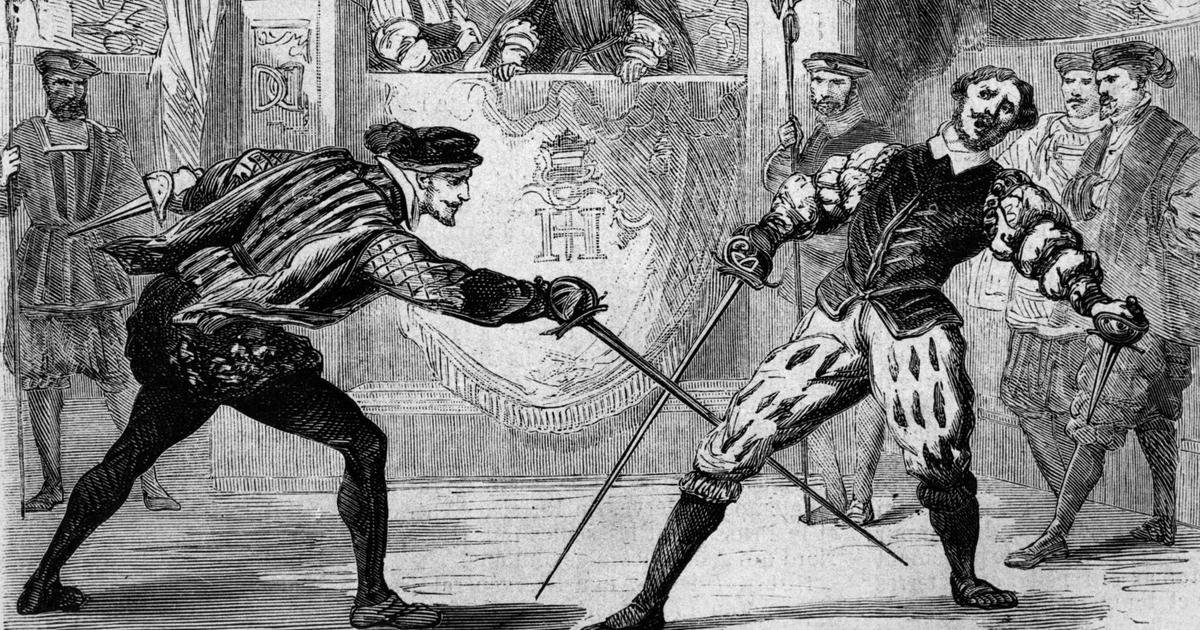"The pedants of the neighboring house played a Jarnac trick on all of my brothers."
Synonymous with treacherous, disloyal manoeuvre, the “coup de Jarnac” is one of the expressions whose origin is deeply linked to the history of France.
Let's go back in time.
July 10, 1547 is a special day.
The court of King Henry II gathers on the terrace of the Château de Saint-Germain-en-Laye to attend an exceptional event.
To discover
Crosswords, arrow words, 7 Letters... Free to play anywhere, anytime with the Le Figaro Games app
Against the backdrop of a female quarrel, two nobles at the court of the Valois, François de Vivonne, lord of La Châtaigneraie, and Guy Chabot, baron of Jarnac, prepare to face each other in a duel.
That day, as Brantôme notes in
Discours sur les duels
, the sun was bright, but the weather was forecast to be stormy.
Indeed, Vivonne is known to be the best swordsman in the kingdom.
Sure of his victory, he has already arranged a great feast.
But Jarnac turns out to be solidly prepared.
Aware of his vulnerability, an Italian fencing master has been teaching him new attacks for several weeks.
war of acceptance
Led by strict rules, the judicial duel ("judicium dei") aims to settle a dispute, to designate the culprit of an act before God and men, after death in combat.
Medieval practice having been officially banned by an ordinance of Saint Louis in 1260, Henry II exceptionally authorized, on the advice of Diane de Poitiers, his mistress - closely linked to the affair -, the confrontation between Vivonne and Jarnac.
When the time for the duel came, after a few heated battles, Jarnac took the lead to everyone's surprise.
He applies the lessons of the Italian master and lands a spectacular backhand blow to his opponent's calf.
Blow allowing him to win the duel.
And this, even if the king then decides to grant life to the lord of La Châtaigneraie - who nevertheless dies during the night.
Read alsoDo you (really) know what the “Court of Miracles” is?
From then on, the expression "coup de Jarnac" entered everyday language to designate a violent, skilful and unforeseen blow.
Its meaning is therefore ameliorative.
In 1771, however, the
Dictionnaire de Trévoux
, the work of the Jesuits, defined in these terms the expression resulting from the victory of the man who, a few years after the fight, had converted to Protestantism: "
What is always taken in bad part, for an unexpected trick that ruins someone or destroys fortune.”
Despite Littré's attempts, almost a century later, to restore its original meaning, a "coup de Jarnac" definitely qualifies as a treacherous and disloyal attack.




/cloudfront-eu-central-1.images.arcpublishing.com/prisa/3XSX2WJX7FPLBAKOW6SDYFSOUM.jpg)




